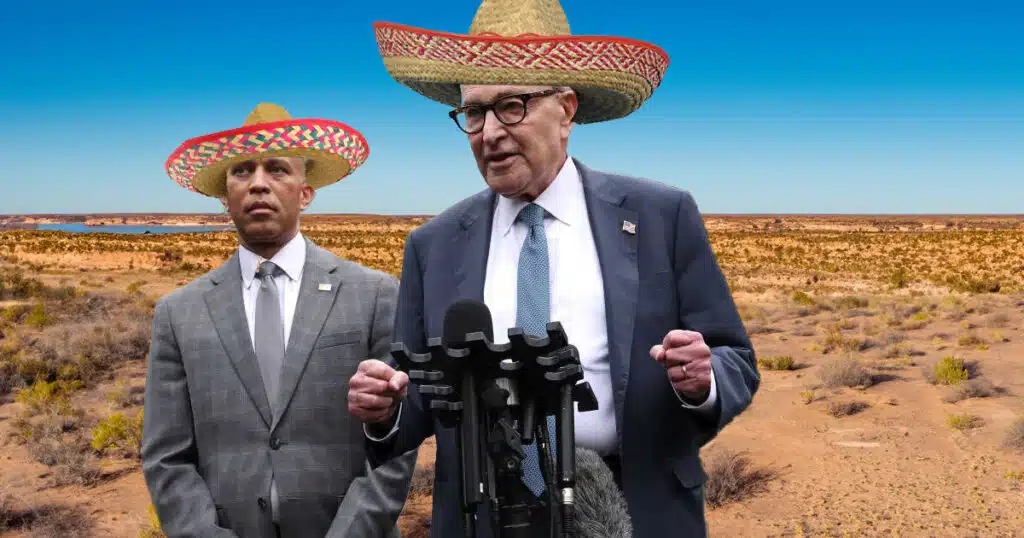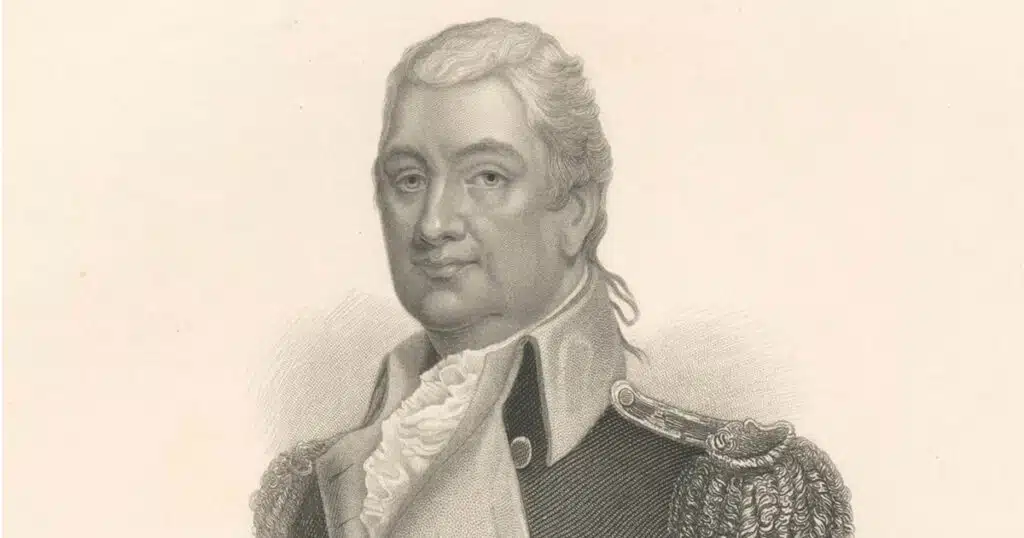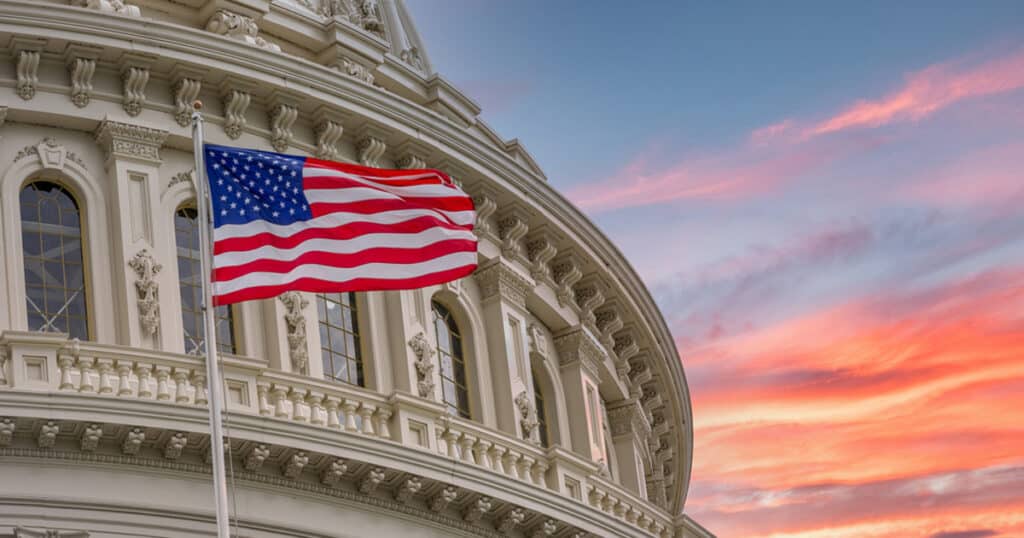
Violent Attacks Just One Threat Facing Nigerian Christians
The fertile Middle Belt region in north-central Nigeria became a killing field in June, when more than 200 Christian men, women, and children were slaughtered in an apparent series of coordinated attacks. The massacre was the latest in a string of killings that have taken the lives of an estimated 7,000 Nigerian Christians so far this year.
Since 2009, Islamists – including Boko Haram and outside terrorist groups such as ISIS – have killed at least 52,500 Christians and displaced another 5 million of them, while destroying some 18,000 churches and setting 2,200 schools ablaze, according to a 2023 report by the Nigeria-based International Society for Civil Liberties and Rule of Law.
The carnage has attracted infinitesimally less global media coverage than the war in Gaza, but those who have focused on Nigeria have described it as a classic case of genocide. Bill Maher has sounded the alarm, while Blackwater founder Erik Prince is asking Pope Leo for funding to defend Nigerian Christians. Last month, Sen. Ted Cruz introduced legislation calling on the State Department to reverse the Biden administration’s 2021 decision to remove Nigeria from a list of countries where religious freedom is threatened.
“Nigerian Christians are being targeted and executed for their faith by Islamist terrorist groups,” Cruz said in a statement, “and are being forced to submit to sharia law and blasphemy laws across Nigeria.”
Many Nigerian Christians, however, reject the idea that the attacks on Christians are a straightforward case of genocide. They note that much of the horrific violence is taking place in the Muslim-dominated northern part of the country, while attacks in the more prosperous southern regions where Christian majorities are concentrated are less intense and frequent. The nation’s Christian population, which now stands at about 46% of the 230 million residents, is expected to increase in the coming decades.
Rampant Lawlessness
Christian leaders say the attacks go beyond a targeted religious campaign, to include rampant lawlessness and banditry, often fomented by local militias and terror groups, that imperil all groups.
“The spate of killings does not take any pattern,” said Abimbola Ayuba, Director of National Issues and Social Welfare for the Christian Association of Nigeria (CAN), an influential ecumenical organization, earlier this month. “If [terror groups] open fire in a marketplace, the bullets don’t look for a Christian or spare a Muslim or even spare a baby.”
This view is echoed by Father Atta Barkindo, a Catholic priest and board secretary of the Kukah Center, a Nigerian interfaith policy research institute. He said the weak government response has allowed the violence to flourish. It “gave birth to all the tiny, tiny conflicts, like kidnapping, where people are making money. Like banditry, where people are making money,” he said.
At the center of the criminal violence in the north is Boko Haram, a militant Islamic terrorist group that formed two decades ago and whose name means “Western education is forbidden.” Declaring their intention to create an Islamic state, members of Boko Haram burned churches and killed thousands of pastors and other Christians. In 2014, Boko Haram’s kidnapping of 276 mostly Christian school girls sparked a global #BringBackOurGirls social media campaign that included an appeal by First Lady Michelle Obama.
But from its earliest days, the jihadist group came to resemble a violent criminal gang, attacking both Christians and Muslims in an effort to gain resources and political control, according to sources on the ground. Amy Gaman, a Christian and managing director of Nuru Nigeria, a nonprofit that helps farmers in the country’s conflict-ravaged northern states, notes that as early as 2010, Islamic militants were also targeting Muslim areas. As a medical student, she was working in a hospital when terrorists attacked a nearby police station in a majority Muslim neighborhood.
More recently, some violence against Christians in Nigeria has become more targeted as transnational terrorists have crossed into the northern parts of the nation. Nigeria’s diverse ethnic population and natural resources – especially oil – make it an attractive location for outsiders to infiltrate and exploit.
These incursions have muddied an already murky informational environment as new forms of conflict emerge. “It’s true there’s physical violence, there’s physical killing ongoing against Christians, against Muslims, kidnapping and all that,” said Father Barkindo, “But the grievances of the Christian community do not just stop with the physical violence.”
Sharia Law
Barkindo and other Christians say their deeper concerns involve a legal conflict that’s exacerbating the political turmoil. Nigeria’s constitution lays out a secular state that guarantees freedom of religion, but the government also allowed Nigeria’s twelve northern states to establish Sharia courts and blasphemy laws for Muslim citizens.
“How do you practice two sets of law in this country?” Barkindo said. “The overall intention is to maintain Northern Nigeria as a pure Islamic environment.” “When you mention genocide, all people talk about is physical violence,” Barkindo said. “I don’t want these other conflicts – of banditry, kidnapping – to simply swallow up the picture of what really, we are facing as a Christian community.”
Barkindo is referring to what he describes as a systemic effort to erase Christians and Christianity from the Muslim north, masquerading as the rule of law. Just this year, four states in northern Nigeria were required to close for five weeks over Ramadan, including private schools, regardless of students’ religious affiliation. “Everything about the genocide is just linked to physical violence,” he said, “I worry if you define it in that way.”
The 2024 annual report from the Kukah Center cites examples of Christians in Nigeria’s north being denied professional and educational opportunities, access to land to build churches, and access to social activities, as well as adequate political representation in state legislatures.
Blasphemy laws can carry heavy prison sentences and the possibility of capital punishment. In 2022, atheist and former Muslim Mubarak Bala was sentenced to 24 years in prison for social media posts about the Prophet Muhammad. Bala was released from incarceration earlier this year, and in April, the Abuja-based Court of Justice for the Economic Community of West African States found that blasphemy laws in Bala’s northwestern Kano state violated the African Charter on Human and Peoples’ Rights.
Some defenders of the blasphemy laws maintain that they help prevent mob violence against religious minorities of the kind that led to the 2022 gruesome murder of Christian student Deborah Yakubu after she was accused – apparently falsely – of disparaging the prophet Muhammad in a group chat. But religious freedom and conscience rights groups are calling on the Nigerian government to abide by the court’s finding and strike down the laws.
“Blasphemy laws are a big problem and dangerous,” said Andi Daze, a Christian lawyer in Nigeria’s capital of Abuja, and legal advisor for the nonprofit Nuru Nigeria. “They not only affect the followers of that religion but could also affect non-followers who never subscribed to those laws.”
Multi-Ethnic Cronyism
Even apart from the parallel legal system in the north, Nigeria’s complicated ethnic and tribal makeup, composed of approximately 300 different groups, has created an entrenched network of favoritism that stymies both the neutral application and enforcement of the law.
“I think that’s part of the crux of the matter,” said Daze. “Because when you come into any area of government in Nigeria, there’s always a division or an interest that seeks to protect and promote certain groups of people over others, and as much as we’re united, we’re actually deeply divided, where you have someone from one part of the country who’s heading an agency or an organization, and they prioritize employing people from that part of the country.”
Nigerians’ suspicion of sectarian favoritism was evident in the reaction to the 2023 presidential election, when President Bola Tinubu, a Muslim from the south, selected another Muslim from the south to be his vice president. It marked the first victorious Muslim-Muslim ticket since democracy was reintroduced to Nigeria in 1999 after decades of military dictatorship. Tinubu’s choice upended two decades of electoral tradition in Nigeria, which typically featured Muslim-Christian or Christian-Muslim tickets. Tinubu’s choice was unpopular with Nigerian Christians, with many prominent Christian leaders fearing that the choice would signal tacit approval of the treatment of Christians in the north.
Suffering Together
But Muslims in Nigeria have grievances, too, as evidenced by a statement from Muslim leaders issued in July alleging that Christian militias have been targeting Muslims in the Nigerian state of Plateau, and decrying the government’s lack of response. Christian leaders responded by denying the allegations, saying that the Muslims should unite with them to fight the rising tide of killings in Nigeria from the likes of Boko Haram.
“In most cases, we suffer together,” said Amy Gaman, Nuru Nigeria’s current managing director. Herself a Nigerian Christian, Gaman says she also has close Muslim family members. Atta Barkindo is the son of a Muslim couple who converted to Christianity so he could attend school. Religious intermarriage is not uncommon. “[Muslims and Christians] cohabit with each other. We love each other,” she said.
But Gaman also acknowledges that nearly two decades of terror have sown suspicion on both sides, with Christians concerned that their Muslim neighbors might support Boko Haram, while Muslims are fearful of being victimized too. Recently, a suspected bandit group abducted eight worshipers from a northwestern mosque during morning prayers, one of a spate of kidnappings in the southern state of Edo.
In a country as large, diverse, and populous as Nigeria, a coordinated police response is difficult. Strict gun control laws have spurred the emergence of vigilante groups and individual states introducing their own security forces.
“You have these different security agencies or factions that are not always the most coordinated, always the most equipped, are not always in the right location,” attorney Daze said. “Policing has been a major challenge because our lands are so vast, communities are spread out. And there’s not enough security personnel, there’s not enough funding.”
As a result, in many cases of violence, it’s hard to figure out the affiliations of the perpetrators. “Each time there are kidnappings, people may say it’s all Boko Haram,” said Father John Ijeoma, a Nigerian priest currently serving as a U.S. Army chaplain who has joined the fight against Islamist terrorism. “It may not be all Boko Haram. It could be other elements who want to make money through kidnapping.”
Restoring the Rule of Law
Longstanding tensions between predominantly Christian farmers and mostly Muslim herders from the Fulani ethnic group add another layer to instability. The herders are pushing down from the north, further into the Middle Belt in search of grazing land.
“There was always going to be clashes,” said Scott Massey, former managing director of Nuru Nigeria. “When harvest is going on, there’s all sorts of crops in bloom, and you’re bringing massive amounts of herd animals down that love that very stuff that’s being grown, so that’s immediate cause for conflict,” he said. This strife presented a ripe opportunity for Boko Haram, whose tactics as an insurgent group include hiding among the population. “Boko Haram, of course, is going to infiltrate.” Massey describes seeing herders using cows to smuggle hidden weapons ranging from machetes to automatic rifles.
Massey describes other forms of mayhem, such as young men on motorcycles opening fire on markets, a frequent occurrence when he lived there from 2019 to 2022. “Was it Boko Haram? No, that was a punk criminal kid who was trying to raid you and wants to steal stuff,” said Massey, whose security team conducted regular threat assessments in the area.
“You cannot put a Western filter over this thing and say, ‘Oh, we understand this place,’” he said. “Is this a tribal thing? Is this ethnic? Is it religious? Yes. And maybe it’s an exploitation of those things by a nefarious actor exploiting traditional fissure lines.”
Barkindo believes that in a country where the Muslim and Christian populations are so interwoven and mistrustful, the solution to the ongoing erasure of Christians in the country’s north is first and foremost restoring the rule of law.
“For me, what the American government should do, number one, is to push the president of Nigeria to review the constitution and clearly define the secular status of the Nigerian state,” he said. Next, he said the moderate voices within Islam must be encouraged. “This war can only be won from within,” Barkindo said, “To fight these extremist ideological narratives that are exclusionary in nature, that are intolerant.”
That is what the Kukah Center does, but at present, there is no language in Ted Cruz’s bill that would reinstate the $26.43 million that the U.S. Agency for International Development disbursed for economic development, education and social services, democracy, human rights, and governance in Nigeria over the 2025 fiscal year. USAID, which the Trump administration has significantly diminished and absorbed into the State Department, disbursed $45.87 million for the same categories in Nigeria during the 2024 fiscal year.
“That could be a lot of good work going down the drain,” said Daze, whose organization received a $2 million USAID grant in 2021 that Nuru says helped establish some 200 farming cooperatives. And as Americans wake up to the struggles faced by Nigerians, especially by Christians in the north, it is clear there is still a lot of good work to be done.
This article was originally published by RealClearInvestigations and made available via RealClearWire.



